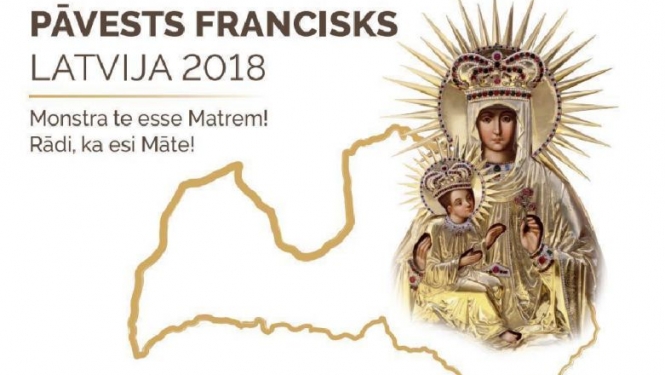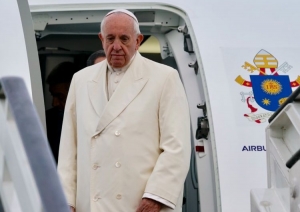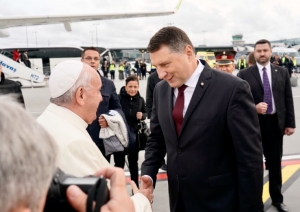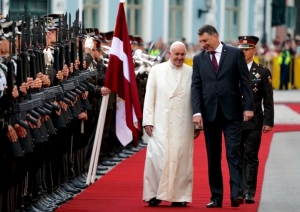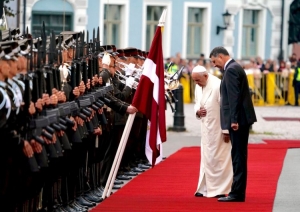Twenty-five years ago, with his visit to the Baltic States, St. John Paul II emphasised the value of our recently regained freedom and encouraged our people on their path towards full-fledged democracy and a return to the common European space.
Today, the visit by Your Holiness is a powerful impetus to pursue the ideals of human dignity, freedom, and justice. Your visit will inspire and strengthen our families, our society, and our country.
A strong country cannot be imagined without strong families. Faith, hope, and love are a firm foundation upon which to build a family home. No law can oblige a person to honour their father and mother and bring up their children in love, but the family can teach such values and pass them on to the next generation. The family is also where love and respect for one’s country begin. Therefore, it is crucial that every child grows up in a loving and familial environment. I hope that we will also soon see a Latvia with no orphanages.
Latvian state has developed rapidly, but not all of us feel this progress in our daily lives. Many people in Latvia still suffer from poverty, with migration and broken relationships being a common consequence. Social inequality is rising all over the world. To mitigate this, we must not only create a fairer society but also review our values in general.
Holy Father,
the dialogue you have maintained is essential for Europe to stay united in its diversity. The fates of the Baltic States in the 20th century is a living testimony to the fact that a divided Europe leads only to suffering. Therefore, our future is in a union based on human rights, democracy, and solidarity instead of selfish interests and gains. Faith brings countries together beyond their national differences. Only together can we be strong enough to take advantage of today’s opportunities and overcome the challenges we are facing.
One of the most significant challenges is the cult of consumerism, which, by creating a general sense of alienation, equally damages a person’s internal and external world. Similarly, human impact on the environment is becoming more and more severe. We experience this acutely in the changes taking place in the Baltic Sea. I am convinced that problems of social justice are directly linked to environmental sustainability and climate change.
The answers to all of these questions begin in the human heart. I believe that your visit will speak to many hearts by encouraging them to make changes for good in each of us and in the whole world!





